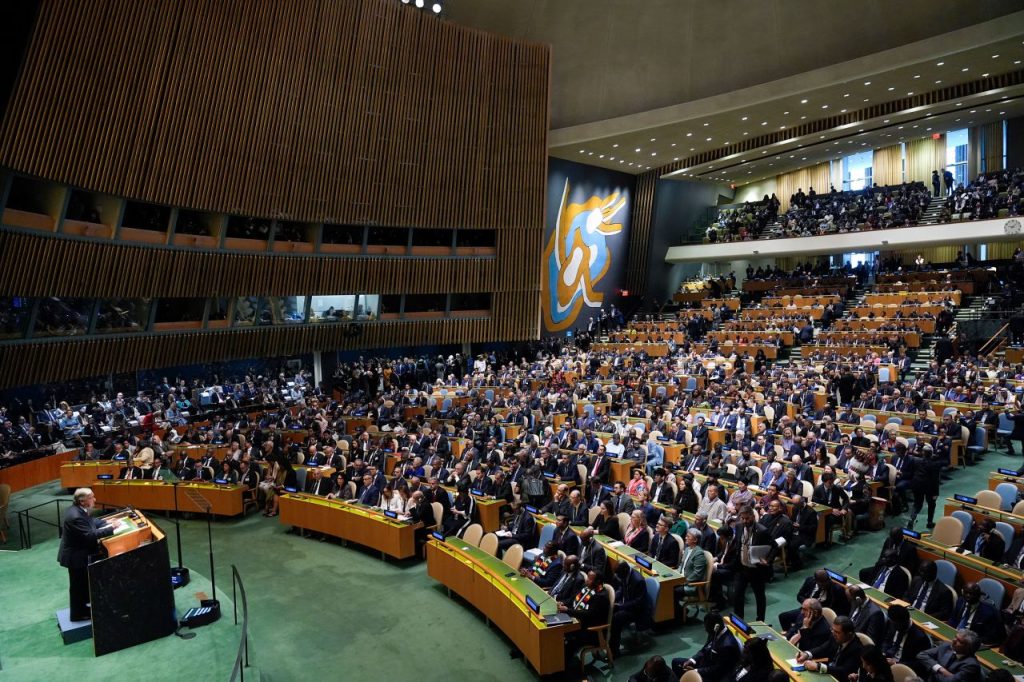Calls for reforming the international system dominated the 79th United Nations General Assembly (UNGA), as world leaders and foreign ministers underscored the inadequacies of global institutions in tackling ongoing conflicts, humanitarian crises, and economic challenges, according to Anadolu Agency.
In his opening remarks, UN Secretary-General Antonio Guterres set the tone by acknowledging that global inequalities are reflected in international institutions. He noted that the UN Security Council was established by the victors of the Second World War, a period when much of Africa was under colonial rule. Guterres emphasised the need for African representation on the Council while recognising potential resistance from those with political and economic power.
Turkish President Recep Tayyip Erdogan echoed these sentiments, asserting that the UN has become increasingly dysfunctional and ineffective in fulfilling its founding mission. “International peace and security are too important to be left to the whims of five privileged countries,” he declared, reiterating his long-standing assertion that the world is bigger than five.

Turkish Foreign Minister Hakan Fidan also reinforced this message during his speech at the Summit of the Future.
Brazilian President Lula da Silva highlighted the urgent need for comprehensive reforms, stating that the current UN Charter fails to address some of humanity’s most pressing issues. He called for a thorough review and revision of the Charter, focusing on the General Assembly’s structure, working methods, and veto powers.
Indian Prime Minister Narendra Modi described reform as imperative within global organisations like the UN, asserting that humanity’s success lies not on the battlefield but in its collective strength for global peace.
South African President Cyril Ramaphosa characterised the current structure of the Security Council as outdated and exclusionary, advocating for the inclusion of African nations and others in its decision-making process.
Australian Foreign Minister Penny Wong highlighted that reform should address the needs of all countries rather than merely increasing the power of a select few. New Zealand’s Permanent Representative to the UN, Carolyn Schwalger, expressed a similar need for Security Council reform.
Several leaders at the General Assembly emphasised the UN’s failure to effectively address ongoing conflicts. Jordan’s King Abdullah II warned of a crisis threatening the UN’s legitimacy and moral authority.
Maldivian President Mohamed Muizzu called for courage in halting “the genocide war in Gaza” and urged for Palestine’s admission as a full UN member.
Indonesian Foreign Minister Retno Marsudi underscored that one of the strategic goals of the UN Future Summit is to achieve a comprehensive world order, advocating for coherent and effective global governance, including reform of the UN Security Council.
Tajik President Emomali Rahmon stated that for sustainable development, the UN and its organisations must take more active steps to coordinate global efforts.
Serbian President Aleksandar Vucic called for rebuilding the credibility of the UN, insisting that double standards must end. East Timorese Prime Minister Xanana Gusmao advocated for structural reform of the Security Council, which he deemed “unrepresentative of today’s realities.”
Italian Prime Minister Giorgia Meloni highlighted that reform should be meaningful for all nations, not just a select few.
The call for reform extended beyond the Security Council to other international institutions. Kyrgyzstan’s President Sadyr Japarov described the Future Summit as a unique platform for laying the foundations of a new global architecture that benefits everyone, not just the elite. Iranian President Masoud Pezeshkian called for urgent reforms in governance structures and international financial institutions to ensure fair representation for developing countries.
Meanwhile, French President Emmanuel Macron characterised the international system as incomplete and unfair, citing the under-representation of many populous countries.


